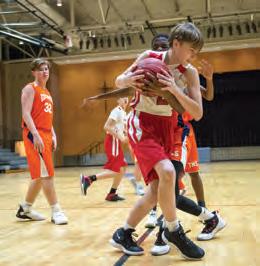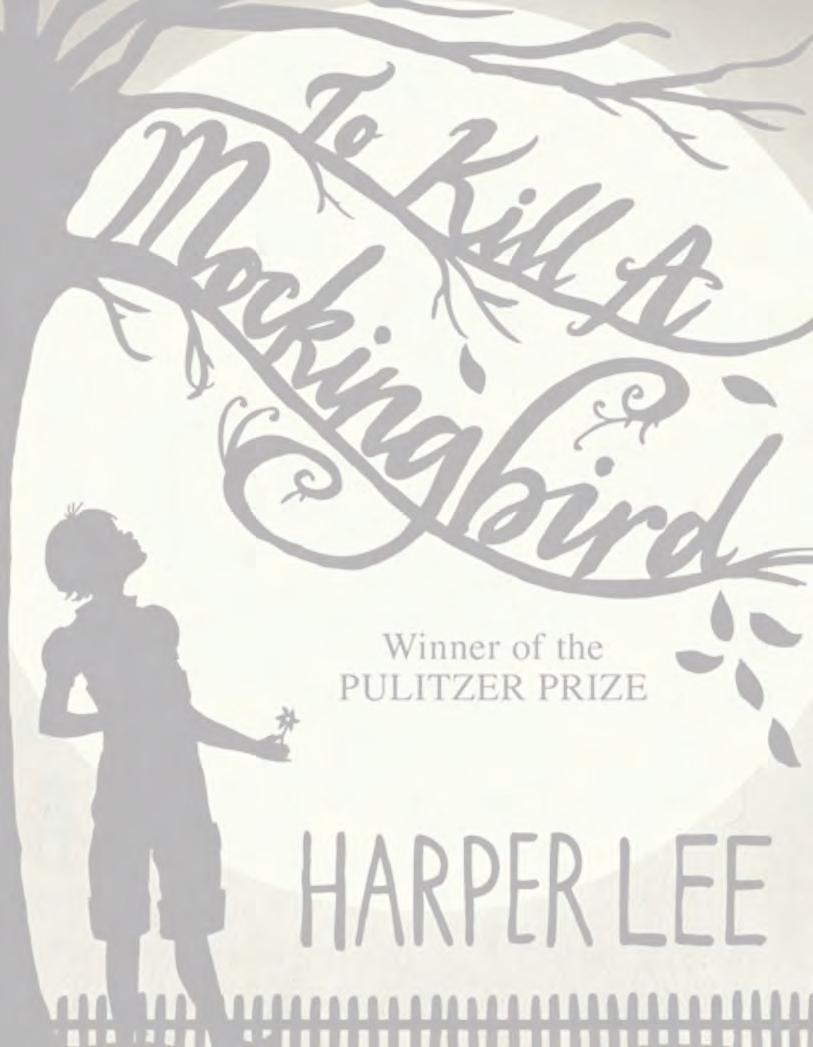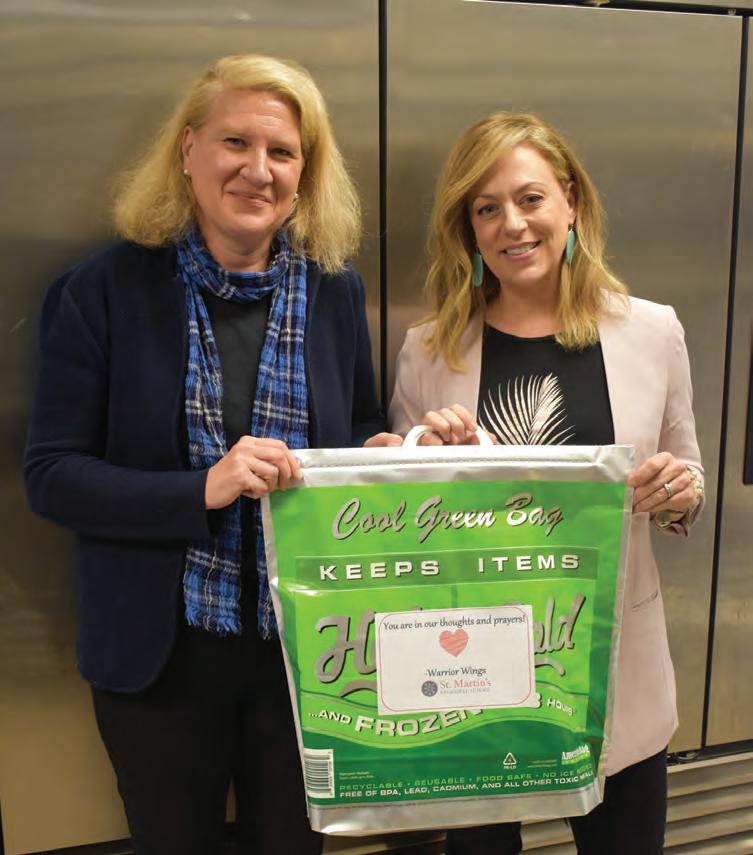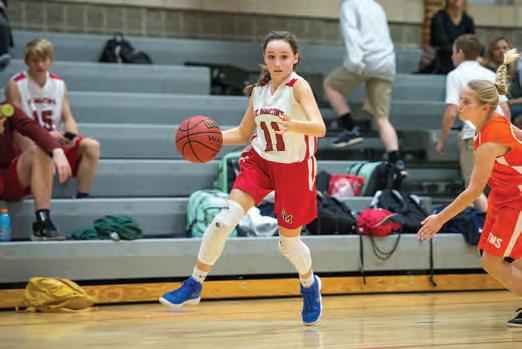
6 minute read
FROM OUR STUDENT REPORTERS
Exceeding Expectations
The Story of the 2019 SMES A Boys Basketball Team
Advertisement
—Jack O’Donnell
ast fall, ten athletic students at St. Martin’s Episcopal School were put together to form the St. Martin’s A-team for basketball. With only one returning member from the year before— Truman Thompson— the inexperienced team hoped for the best in the season. After the first week or two of practices, the team realized they were not the most talented of teams and would have to win games with great effort instead of great skill.
The team spent most of their time at practices working on rebounding and defense. A lot of conditioning and hard work was in play during these practices, as the boys would need to be very scrappy every game in order to win. The first game was thrown very quickly at them, but they managed to put up a good defensive fight against AIS. Offense, however, was a different story and SMES took a close loss at 24-20. After the game, the coaches and players were proud of their effort and believed that they would have a successful season after gaining more experience.
Two days later was the next game, but the story was much different this time. They played away against Atlanta Academy, and dominated on every level possible. SMES was taller, faster, and smarter, which led to a 64-19 win.
The team then had two solid weeks of practice heading into Christmas break. After the break, many players were thinking that they would tear up the remaining eight games left in the season and possibly even win the league. This was not the case, however. St. Martin’s put up great fights against everyone they played, but their lack in size, strength and experience proved to hurt them in the second part of the season.
The SMES A basketball team struggled, but they did not let it get the best of them. Coach Rob Harris and Coach Mark McDaniel kept the players’ confidence high, and motivated them before each game. “Our team was not the most talented of teams, but our approach to every game ultimately led to us winning some,” said Coach Rob. The Warriors finished the regular season 3-8, but ended on some high notes in the playoffs.
The first round of playoffs was against Holy Spirit, a team SMES lost to earlier in the season. On the bus ride to the game, the players learned that their next school day was canceled due to “snow,” so the players knew they would have a day of rest and could give 110 percent to this game. The game tipped off, and SMES’ energy and focus put them up 14-4 quickly. The first quarter ended, and SMES had completely outplayed Holy Spirit. In the second quarter, Holy Spirit cut into the lead and in the third quarter they made a comeback ending with SMES only up by five. In the fourth quarter, Holy Spirit’s momentum caused them to take their first lead of the game. SMES called a timeout, and was down 34-33 with three minutes left in the game. SMES got right back into it after the timeout, with Bryant Lisenby driving in and kicking to Matthew Aronowitz who hit a clutch three-pointer. Holy Spirit came down the court and made a layup with a very slow, offensive possession.
With 45 seconds left in the game, SMES took the ball down the court. The Holy Spirit defense had a breakdown, and Nathan Altiery was wide open for a layup, putting St. Martin’s ahead with 15 seconds to go. Great defense by St. Martin’s led to a shocking win over Holy Spirit. The next game came and went, with St. Martin’s putting up a great effort but ultimately losing.
Despite the team record, this team went from being predicted as one of the worst teams in the league to exceeding everyone’s expectations.





(This time it’s English class)
How does an English teacher engage 8th-grade students when reading a tough novel? Mrs. Davis, SMES 8th-grade English teacher, uses a “Survivor” competition technique which has interested her students for many years. For part of the second semester in 8th-grade English, students are reading “To Kill a Mockingbird,” by Harper Lee. In this novel, the readers follow a young girl’s journey in life as she, Scout, grows older, experiencing the racist ways of the town she lives in, Maycomb, Alabama, in the 1930s. Inside this unit, students competed using various techniques, participated in a Socratic seminar, and read the trial scene aloud in class, which helped this unit to be fun for the students as well as Mrs. Davis.
Mrs. Davis decided to start engaging students using the format of the reality show “Survivor,” a game technique she created in 2005.
“It was so successful and really pushed my previous high school students not only to read, but to discuss, analyze, and critique characters, conflict, and theme that I have continued using this format wherever I have taught,” says Mrs. Davis.
split themselves into groups and completed various challenges to earn points. The group with the most points wins, and their prize is that they don’t have to write the literary analysis essay. Instead, Mrs. Davis gives them two unnamed essays from previous years, and the students have to grade and discuss those, which helps practice writing skills as well.
Each group has a name and an “insignia” or costume identifying their team to wear on competition days.

Eighth grader Jules Schmidt says, “I enjoyed reading ‘To Kill a Mockingbird’ because we got to play a Survivor game, which was really fun since we got to compete within our class.” In each class, the students
For the competition portion of the unit, each challenge awarded the students with a different amount of points. Mrs. Davis found ways to make each challenge fun while still having an educational foundation. Throwing cotton balls at bread smothered in peanut butter, Pictionarystyle quizzes, and trying to put penne pasta on a skinny pasta noodle using only their mouths are some of the challenges groups have participated in. Usually after the physical activity, students sit down with their team and write an analysis of what they think the challenge symbolized. They also occasionally take quizzes in competition form, which enhances the teamwork.
A class favorite was acting out the trial scene. Instead of reading chapters from the book, students played different characters and read aloud from the script version in class.
“We got to act out the trial scene in class which made it easier to understand and more fun,” says 8th-grader Jules Schmidt.
The “To Kill a Mockingbird” unit also involved a Socratic Seminar, which helps prepare the class for high school AP Literature and AP History courses. The final seminar allowed the students to conduct the discussion lasting the whole class period with Mrs. Davis having no say. Parents were invited to attend the Socratic Seminar in the Middle School atrium.
“I thought it was interesting to see how the interaction between the students was different than how their interactions with their teacher would have been on the same subject matter,” says 8th-grade parent Cathy Fisher.


Mrs. Davis added, “I teach students how to discuss using the Fishbowl Socratic Seminar method. This is a higher-order thinking skill where they create open-ended questions and respond thoughtfully and respectfully to each other seeking a collective understanding.”
The students agreed that the competition technique is an entertaining and engaging way to comprehend the different parts of a novel. Working together as a team made the subject interesting and most agree that it makes the whole unit more fun, and prepares students for the next chapter in life, high school.









